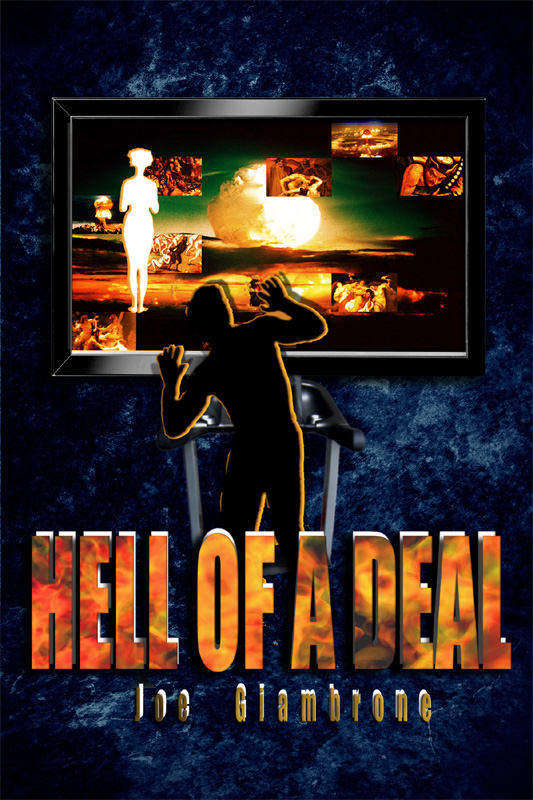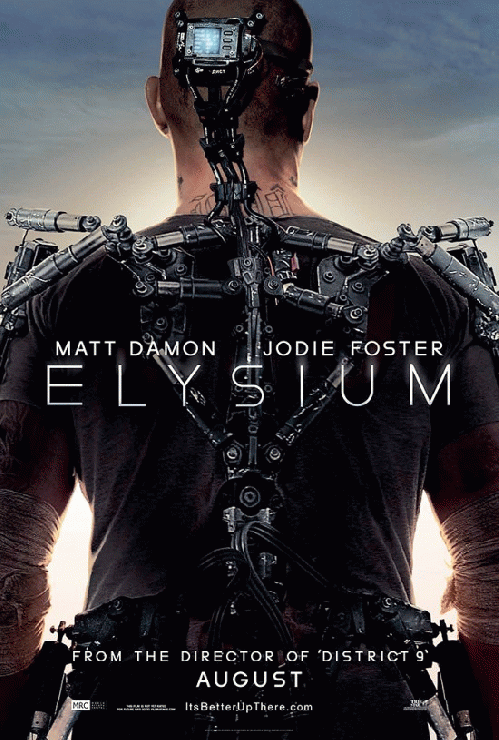A desolate third world wasteland. A gated, auspicious, white people paradise. Slave sweatshop. Tea and martinis. Not all that implausible, but Elysium represents the ultimate gated community, while the third world has become the entire earth.
This fundamental class distinction leads to inevitable class conflict in Neil Blomkamp's follow up to District 9 , a similarly weighty sci-fi film. Both films take on issues of global significance, particularly immigration, apartheid and capitalist exploitation of the underclass. Blomkamp strikes a blow for the rest of humanity, and Elysium is a very good film, bordering on greatness. For an action sci-fi thriller, it delivers the battles, the archetypes and the desperation of the world. I heartily recommend seeing it.
Elysium With Spoilers
But the story has enough emotional punch driving it that I'm not too worried about the few nicks and bruises, continuity issues and whatnot. This film tells the story that Hollywood would never, ever tell without Blomkamp guaranteeing buku butts in seats. So we're witnessing a rarity here, the exception and not the rule, and this movie should be judged as such.
Predictably, a number of corporate-employed critics have assailed the film. We're not allowed to have meaningful, relevant sci-fi of course. They've taken to inflating some of the film's quirks way out of proportion.
Justin Craig at FoxNews gets it exactly reversed:
"People expecting another District 9 or who expect a little more substance from their science fiction films will most likely be disappointed by Elysium, but those who like their videogame-style sci-fi shoot-em-ups will have no problem here."
This is backwards by 180 degrees. The battles could have been better staged and tactically thought out. The moral and ethical spine of District 9 comes through louder and clearer in Elysium, and is what pissed off a number of other defenders of the status quo.
William Goss of Film.com, which looks like the marketing department of the major studios, sez:
"Blomkamp's seemingly limitless imagination in terms of tech finds itself repeatedly and frustratingly grounded by heavy-handed storytelling."
This is code for writing about something important, rather than mindless fluff or meaningless plot twists. When the "storytelling" gets a little too close to home it is deemed "heavy-handed" and this is the gentleman's way of nudging the people to not embrace class conflict.
Stephen Whitty of the Newark Star Ledger, a city steeped in racial tension, said:
"It's like one of those bad "Star Trek' episodes, when Gene Roddenberry stopped everything on the bridge so he could lecture us about the Cold War."
You mean like Dr. Strangelove? This is just off the mark in so many ways. Comparing the old Star Trek to Elysium is a ridiculous point to make, but I guess they're both sci-fi, so anything flies. No one is stopping to lecture in Elysium, at all. It's an action thriller, and the lessons are organically part of the backdrop of the story. What resonates is that these are today's lessons, and they aren't fictional in the slightest.
But rest assured, Time Magazine and Richard Corliss will tell you what to think about it:
"Elysium, which at least triples the first film's budget and adds Matt Damon and Jodie Foster as marquee bait, spends less time appealing to the viewer's What-comes-next? impulse than on elaborate social metaphors."
Corliss is real good. First attack the artist for his budget, as many others have done. Then try to somehow tie that into discrediting the "elaborate social metaphors" in the same breath. These elaborate social metaphors are simply brilliant, desperately needed, and sure to make the film a massive hit in foreign markets. Time Mag may not appreciate them, but a few billion others may see things quite a bit differently.
(Note: You can view every article as one long page if you sign up as an Advocate Member, or higher).






